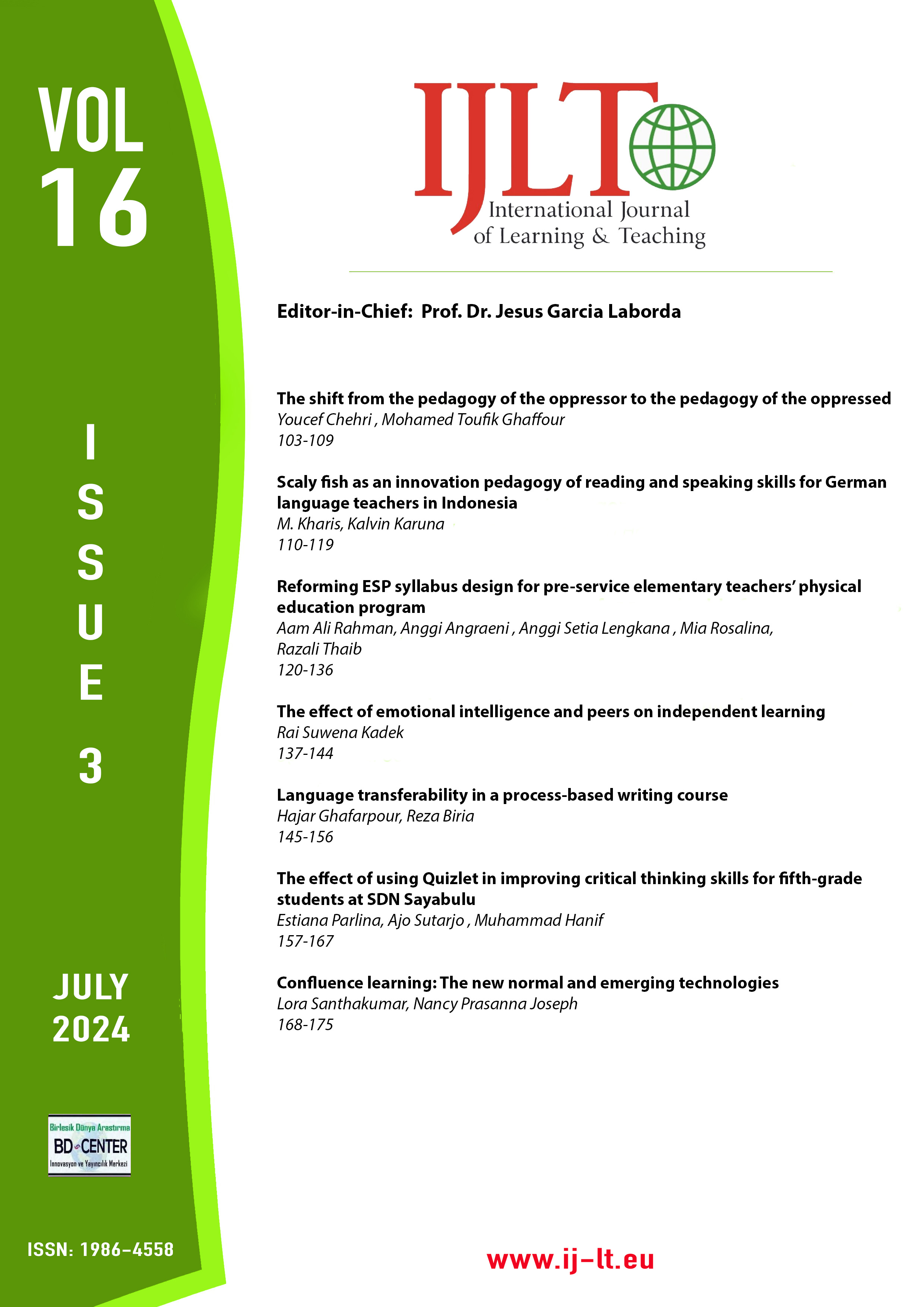Confluence learning: The new normal and emerging technologies
Main Article Content
Abstract
The COVID-19 pandemic boosted the global adoption of blended learning methodologies, since there was a need to limit interaction with people to lessen the risk of disease had resulted in the complete closure of all academic institutions. Blended learning is a modern teaching approach that blends conventional and contemporary learning approaches, wherein the online learning tools would not entirely substitute how conventional teachers engage with each other and educate their pupils. Nevertheless, there have been various difficulties in comprehending blended learning methods and working together as a team in an academic environment. The goal of this article is to examine teachers' and students' viewpoints on the usage of blended learning (offline/online) modalities in education and learning processes. Using a narrative literature review method, this study discusses emerging technologies. From the results, moving from a conventional to an e-learning platform requires changes in educational paradigms and behavior, resulting in the development of a modern learning culture and also the incorporation of technology advancements in education. During a crisis scenario, such as a pandemic or natural catastrophe, online/blended learning may help learners fulfill their academic requirements more effectively.
Keywords: Blended learning; Covid-19 pandemic; learning approaches; online education.
Downloads
Article Details

This work is licensed under a Creative Commons Attribution-NonCommercial-NoDerivatives 4.0 International License.
Authors who publish with this journal agree to the following terms:
- Authors retain copyright and grant the journal right of first publication with the work simultaneously licensed under a Creative Commons Attribution License that allows others to share the work with an acknowledgement of the work's authorship and initial publication in this journal.
- Authors are able to enter into separate, additional contractual arrangements for the non-exclusive distribution of the journal's published version of the work (e.g., post it to an institutional repository or publish it in a book), with an acknowledgement of its initial publication in this journal.
- Authors are permitted and encouraged to post their work online (e.g., in institutional repositories or on their website) prior to and during the submission process, as it can lead to productive exchanges, as well as earlier and greater citation of published work (SeeThe Effect of Open Access).
